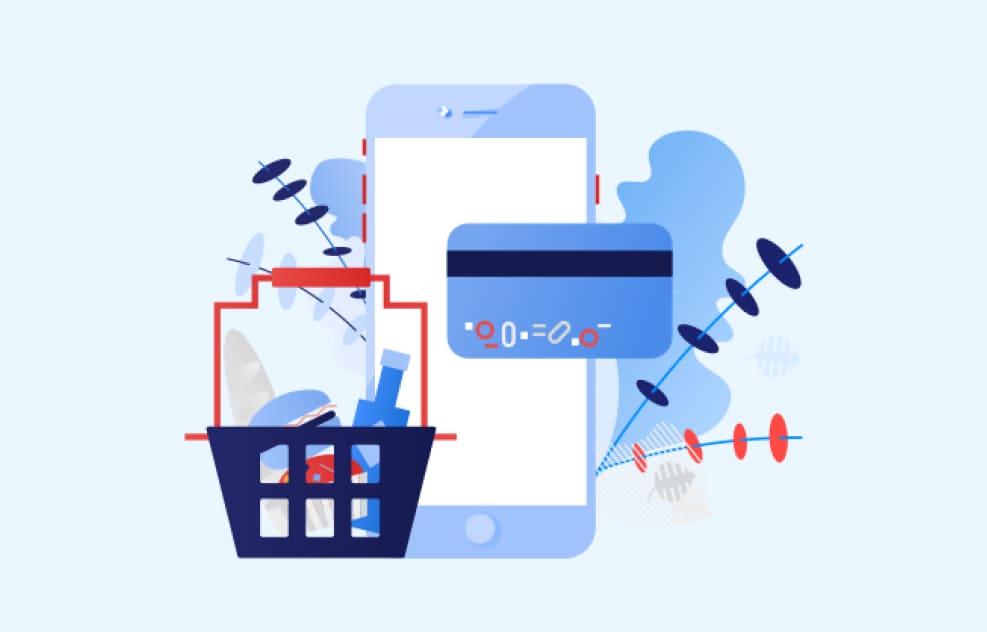Did you know that nearly 1,949,258,872 websites live on Internet as of May 2022?
That is a large number of websites. However, they are not all made equal. In fact, many of them are downright unsightly, out of date, and useless.

The process of redesigning a website can be difficult. You want to avoid losing any traffic or search engine rankings during the transition, but you also want to use the opportunity to improve your site and possibly rebrand.
Whether you’re redesigning your website to attract more users or to earn more conversions, there are many pitfalls you need to avoid to maintain traffic and sales throughout the process.
The following are some of the most common mistakes you should watch out for when redesigning your website, along with advice on avoiding them so that your site can continue generating sales and traffic until it’s completed without interruption.
Website Redesign: Top 12 Mistakes to Avoid
1. Designing Without Website Analytics
One of, if not the biggest, mistake you can make in designing a website without using analytics. Analytics are crucial for determining what works and doesn’t work and give your business a completely different perspective on its internet presence.

Besides, it also helps you see how well your site performs compared to similar businesses and provides valuable data on specific content (and design elements) that users are drawn to. With analytics, you can have evidence-based reasoning and decision-making when it comes time for redesigning.
In short, web analytics isn’t just helpful; they’re vital during redesigns and any time you plan new content or an update to an existing page. If your design process doesn’t include analyzing data, you might be designing blindly!
2. Not Including Seo In The Redesign Process
Without SEO, your site will never show up in searches. And without being found, there’s no business for you. You can improve your site’s design and functionality, but it won’t do much good if anyone ever visits.
Ensure that every step of your redesign process includes an eye toward search engine optimization (SEO). Moreover, even something as simple as how you name files on your server can affect how Google indexes them.
Ensure that anyone working on your site is familiar with basic SEO principles so that they don’t make mistakes like using too many or misusing keywords. It may be worth hiring a web development company specializing in SEO to take care of these details.
3. Ignoring Current Audience Preferences
One of the biggest mistakes any business can make is ignoring current audience preferences. If you’re planning a website redesign, it’s crucial that you know your current audience inside and out and can identify who your ideal customer is.
If you don’t know who your customers are, start by asking questions like these:
- What kind of products do they need?
- How often do they need them?
- What exactly would they look for on my site?
- Are there specific things I sell that they could care less about?
- What type of content do they share with their friends and family members on social media sites?
Once you have an idea of what your customers want, use those answers to create or improve upon your existing product offerings. Furthermore, one of the best ways to figure out what your customers want is by doing some surveys.
You can utilize surveys to learn what customers think about prices, product features, etc.
Surveys also help you track responses to see which demographics respond more favorably than others.
4. Not Optimizing For Lead Generation
There are so many things that can be changed about a website, but not all will impact your bottom line. Besides, the biggest mistake most companies make is focusing too much on aesthetics and visual design and ignoring how they can use their site for lead generation.
Do you know where your business ranks in Google? Are your competitors driving more traffic than you?
If you’re not using SEO, SEM, or social media as part of your marketing strategy, it’s time to take advantage of these valuable tools. These days, consumers start their research with Google, and your business must appear when someone types in relevant search terms.
You must ensure that your website is lead generation optimized. This implies that it should include a prominent:
- Call-to-action button or form (e.g., Request a quote)
- Form for capturing email addresses (e.g., Join our mailing list)
- Social media icons that link to your social media profiles (e.g., Facebook, Twitter, LinkedIn)
- The search box that allows users to search your site and its content (e.g., Search our site)
5. Buying Too Many Plugins/Themes
Not all web-design companies and developers are created equal. It’s crucial that your company partner with a company that focuses on your website and what you’re trying to accomplish rather than selling you any old package or theme.
Having too many plugins or themes on your site can slow it down, which will impact how well it performs on search engines and how much traffic it gets. Additionally, they can cause issues with site usability, making it difficult for users to navigate around your site and complete their goals once they’ve arrived there.
According to research, 57% of users will leave a website that takes more than 3 seconds to load.

That’s why it’s essential that your site be as fast as possible and not bogged down by unnecessary plugins or themes. If you’re thinking about redesigning your site, choose a company that will focus on getting rid of these issues rather than adding new ones.
6. Bad Call To Action Buttons
Your website’s call-to-action buttons can make or break it. However, it is advisable not to overdo it and add too much. When you add too many calls to action, you run into a problem known as CTAMC (Call To Action Marketing Fatigue). This happens when visitors become confused about where they should go next. Think about it-how much can your visitors absorb?
If users arrive on a page with more than three calls to action, they may get dissatisfied since they are confused about which one(s) is relevant to them. And if you have a lot of different calls to action, the chances are that some of them won’t be as effective as others.
For example, let’s say you have an eCommerce site selling men’s clothing. Your goal is to sell men’s suits online, but you also want to sell shirts and ties for those who buy suits from your site. You could write Shop for Suits in large text at the top of your homepage followed by the smaller text below saying also shop for shirts & ties. While two separate calls to action may seem like a good idea, it hurts both efforts since neither is given enough attention or focus.
7. Neglecting Usability Testing
Be sure to conduct usability testing with your users whenever you redesign a website. Many web development companies often skip this step, especially for organizations not working within their core area of expertise. Usability testing ensures that you solve problems and deliver value rather than just create an impressive-looking design or platform.
Ensure that you find an independent usability tester who doesn’t have any conflicts of interest in designing your site; otherwise, you risk getting biased results. Moreover, whether you do it yourself or hire someone else, here are some tips on conducting usability tests.
8. Ignoring The Mobile User Experience
The truth is that most mobile visitors have only one thing in mind: finding what they’re looking for as quickly as possible. Moreover, if you don’t make it easy for them, you will lose out on valuable opportunities and sales.
So, how can you prevent and save from making these common blunders?
Simple—turn to a web development company with an expert team of professionals who understand user experience and responsive design best practices.
Plus, they’ll always be one step ahead to ensure your website looks the best across all platforms and devices (including smartphones and tablets). Moreover, 91% of internet users go online using their mobile devices. So, let an expert work for you instead of trying to go it alone!

9. Confusing Design With Creativity
Getting new designers is easy, but choosing a creative agency isn’t.
A design agency can offer various services, including digital marketing and web development, and provide value-added services like idea generation, so make sure you’re hiring a creative agency that can deliver on all fronts.
You need an expert team that understands your requirements and are willing to go beyond what is required. The first thing that comes into our mind while picking out a professional website design company is if they understand how we work in an online environment and how it will be different from any other format like print or television. This step-by-step process makes it clear to us what exactly their expertise lies in.
10. Not Making The Website As Responsive
One of the top 12 mistakes website designing companies makes failing to make a website responsive. Many users are now using their mobiles and tablets to access websites, especially when they are on the go or traveling. You need your website designing company to make your site as responsive as possible.
Making your site responsive also increases its usability in significant search engines like Google, Bing, and Yahoo! And who knows? You might just get yourself that crucial first-page ranking if you hire a professional website designing company for redesigning.
11. Unclear or Inconsistent Branding
Your branding should be clear and consistent throughout the site regarding website design. That includes your logo, color scheme, tagline, mission statement, and other elements of your brand identity. Your web development company should be able to help you ensure that your branding is carried through every page of your site.
12. Not Paying Attention To The Overall Budget
Designing a website is not a one-time expense. You will need to continue paying for hosting, domain name registration, and other ongoing costs. Make sure you factor these costs into your budget when planning your redesign.
In addition, be prepared to pay your web development company for any maintenance or updates that they may need to perform on your site.
Wrapping Up!
The most crucial part of your redesign is to stay on track with your website’s original purpose. Don’t stray from that mission statement, and don’t forget about your original target audience. Therefore, if you want to keep things simple, focus on improvements that make it easier for people in your target market to get what they need from your website. Finally, always use user testing before rolling out changes when redesigning a site. It’s easy to fall into assumptions, but you can avoid costly mistakes down the road if you test your ideas first.
Moreover, avoid changing your site too frequently. Once you have a design that works for your target audience, it’s important to stick with it for a while. Plus, if you change things too often, people will get confused and frustrated and won’t want to return.






